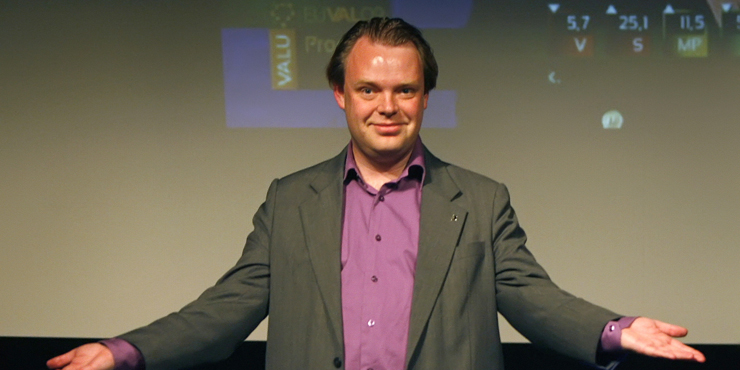The philosophy of the Pirate party is simple, and begins with empowerment, the fundamental change in our modern society that comes with everyone having a voice. This voice is accessible across the globe in the form of the Internet. It provides a solution that has always been at the heart of government, even our own pseudo democracy: the people can now confer amongst, and govern themselves. This holds true only to a certain extent of course. There must be laws or protocols in place to keep the rights we enjoy and the safety we require from being phased out, but there must also be a level of flexibility built into the system that we do not have now.
Rick Falkvinge, on his website falkvinge.net, says it best when speaking about the heart of the Pirate party:, “…society’s administration shifts its activity from ruling to governing, and that they assume good faith on behalf of the now-empowered people.” That is the heart of the Pirate philosophy, This along with the eight spokes on the Pirate Wheel make up all that the party stands for. The spokes represent privacy, transparency, free use, and distribution of TICKS (tools, ideas, culture, knowledge and sentiments), humanism, diversity, resilience, swarm economy, and quality legislation. There might be an item or two in this list that doesn’t make sense, or that isn’t immediately decipherable. I would encourage anyone reading this article to also visit Rick’s website and read up a little on what exactly these values mean, and why they are important.
The Pirate party is a radical new force in today’s political realm in the same way the Green party was forty years ago. They are bringing to light an issue that is being shoved into mainstream obscurity for one simple reason: profit. Corporate monopolies rely on several mechanisms for their millions, but the content industry has one ace in particular up its sleeve. That ace is the copyright monopoly, otherwise known as exclusive rights. These rights are bought and paid for in a system that is built only to reinforce the status quo, . meaning that that being that those with money keep it, and those without money cannot afford to make it.
What I mean by that is simple enough: to even begin to own something as intellectual property, you must apply for a patent. The cost of this endeavor varies greatly by location (read: nation) and the laws of that nation in influencing the patent and trademarking process. In the US, the costs can range anywhere from a few thousand dollars for a very simple invention, to more than ten thousand if the invention is in any way complex. In the European Union, the cost of such an application alone can exceed 50,000 Euro. This system is not for the benefit of those with little to no resources and a good idea. Rather, it benefits only those in a financial realm already capable of tossing hundreds of thousands of dollars into the costs of R&D and other associated patent costs. The Pirate party is, in all fundamental respects, against this system.
More than the copyright monopoly, though, the party is most concerned with free and private access to information and media. This means they want the government and corporate lobbyists to quit limiting our spheres of digital expression. Bills like the recently shelved SOPA (Stop Online Piracy Act) and PIPA (Protect Intellectual Property Act) are anathema to the Pirate party. They are now fighting their biggest battle yet against a bill in the EU Parliament by the name of ACTA, the Anti-Counterfeiting Trade Agreement. Notice how these bills are titled to make you feel supportive of them? Those titles are as erroneous as the bills themselves, which is why SOPA/PIPA were kicked out of Congress and the House, respectively.
ACTA is still alive, though quite a bit less well than when it came out onto the Parliamentary floor. One of the most concerning things about this bill is that the US, a non-member of the EU, has signed it as well. That means if it is passed in the Union, a version of it will instantly make its way into US law. As if that weren’t enough, a new bill entitled CISPA (Cyber Intelligence Sharing and Protection Act) has been pushed through the House of Representatives and will hit Congress next week. President Obama himself issued a threat to veto the bill if it landed on his desk in it’s current form, but he should have said “any form.” This bill and all those like it are an impediment to innovation and freedom, regardless of the pretty words and outright lies that are told.
The Pirate party is a new voice in the same old melee of legislators and lobbyists, corporations and industries. These self-proclaimed Pirates are the lifeline that the world has thrown itself to escape the outdated models of yesterday, and embrace the vast potential of our collective tomorrow.


If we are really owing some thing , we must have it patent as Lincoln said that the Patent Office adds the flame of interest to the light of creativity.